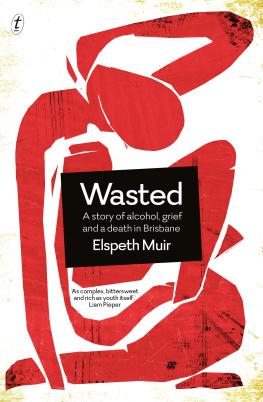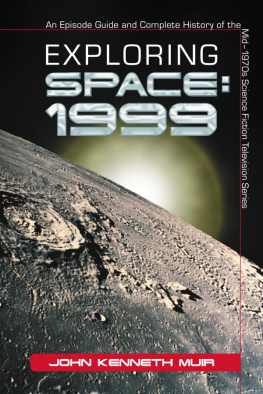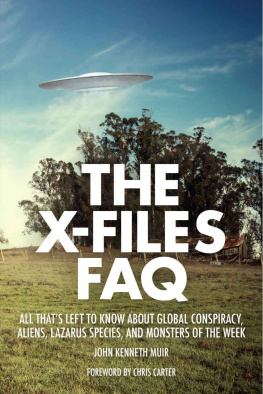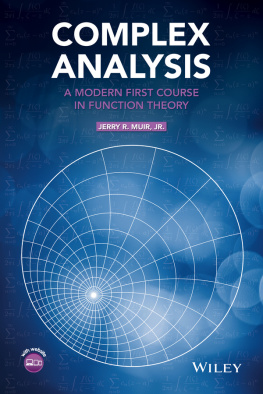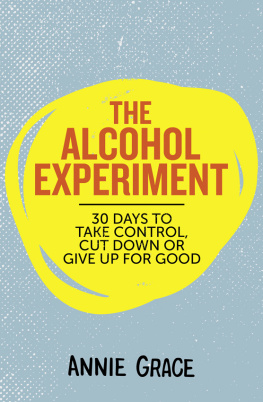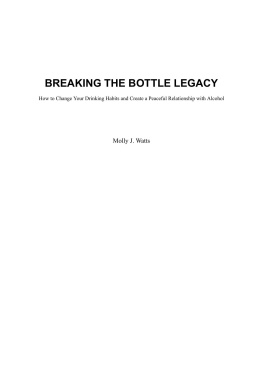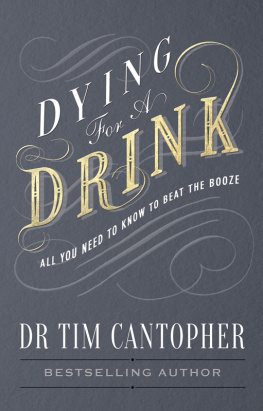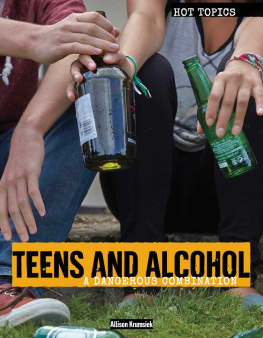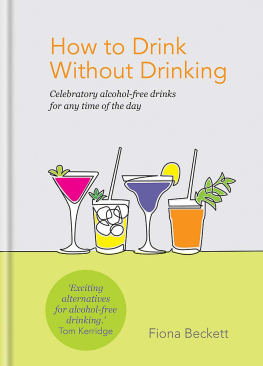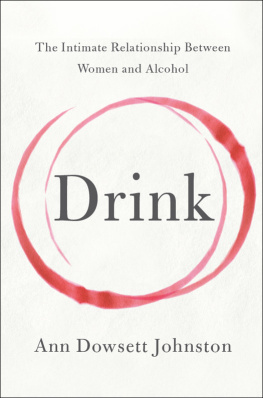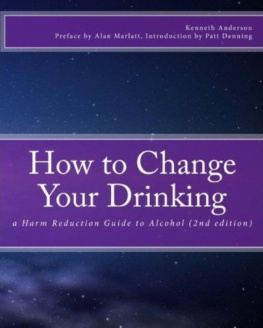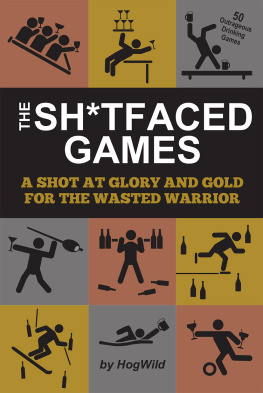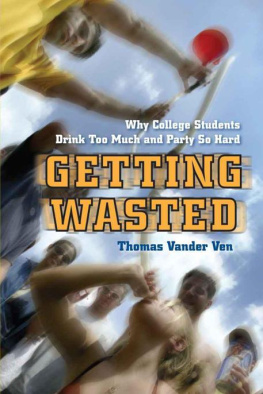Elspeth Muir is a Brisbane author whose writing has appeared in the Lifted Brow, The Best of the Lifted Brow: Volume One, Griffith Review, Voiceworks and Bumf. She is a postgraduate student at the University of Queensland.
textpublishing.com.au
The Text Publishing Company
Swann House
22 William Street
Melbourne Victoria 3000
Australia
Copyright Elspeth Muir 2016
The moral right of Elspeth Muir to be identified as the author of this work has been asserted.
All rights reserved. Without limiting the rights under copyright above, no part of this publication shall be reproduced, stored in or introduced into a retrieval system, or transmitted in any form or by any means (electronic, mechanical, photocopying, recording or otherwise), without the prior permission of both the copyright owner and the publisher of this book.
This book started life as an essay, Pissed Off, in Griffith Review 36: What Is Australia For? (2012)
First published in 2016 by The Text Publishing Company
Cover art by W. H. Chong
Book design by Jessica Horrocks
Typeset in Joanna MT by J & M Typesetting
National Library of Australia Cataloguing-in-Publication entry
ISBN: 9781922182135 (paperback)
ISBN: 9781925095135 (ebook)
Creator: Muir, Elspeth, author.
Title: Wasted : a story of alcohol, grief and a death in Brisbane / by Elspeth Muir.
Subjects: Muir, ElspethFamily. Brothers and sistersQueenslandBiography.
Young adultsAlcohol useAustralia. AlcoholismAustralia.
Dewey Number: 362.292092
For Dymphna, Chris, Patrick
and Alexander Muir
CONTENTS
It was hot when Alexander was buried, on one of those low Brisbane mornings in November when you might have scooped a fistful of blue from the sky if youd stretched an arm out. Hot smellsjasmine, scrub, beer, dirt, exhaust fumes, cigarettes, stinkbugs, grass and rotting mangoescrystallised in the heavy tropical air that turns southerners mad with despair: The temperatures not as high as back home, but the goddamned humidity! Crickets fucked in the bougainvillea and their creaking hum was the hum of the heatlike the muffled roar of a far-off highway, only noticeable when it ceased.
There were flies in the kitchen, cane toads on the driveway, golden-orb spiders in the camellia and mosquitoes in the window blinds. Currawongs, butcherbirds and magpies sang and shat in the frangipani tree while lizards hunted on the pool tiles. At night possums crawled along the brush fence, and bats fought over greenish bananas. Everything, but my brother, was alive.
The funeral was held in a redbrick church on a hill. From the front steps you could see Mount Cootha, St Lucia, The Grange, Hamilton, Ashgrove, Alderley and the city. Light muddied by dust motes spotlit sections of the wooden pews. A crucifix hung high in the curved recess behind the altar, and in the choir loft organ pipes rose like bamboo.
In the aisle the casket rested on a silver trolley with collapsible legs. Frangipani boughs from the tree outside my parents kitchen were wired into a messy funeral wreath. Beneath the lid was my brothers soggy bodyfresh from the refrigeratorpickled in embalming fluids, alcohol and river water. On once-fertile plains of flesh, now flushed with chemicals and emptied of organs, dying parasites weakly tapped their tails. Later, corpse eaters would digest his freckled skin and rough hands. At this moment, however, the microscopic ecosystems had been halted long enough that the stench of their unsavoury feast did not haul the congregation back to earth, dirt, the mechanical minutiae of changeatoms once clumped desegregating and reforming.
It was 2009, and Alexander had just turned twenty-one.
The church was stuffed with people, too many to sit inside, so they stood around the back door peering in. Now and then someone would clutch at my shoulders, or pass me tissues and water. I looked at my hands. Eye contact elicited tearful stares, the endless professions of sympathy: Im sorry for your loss, Im sorry for your loss, Im sorry for your loss. (Fuck off.)
Three priests, dressed in white cotton soutanes, said Mass. Twice, while the others sat, fluffing and smoothing their vestments around them like bantam wings, the tallest priest stood upunfathomably, incorrectlyas if powered by a broken spring: during the First Reading, then during the Gospel Acclamation. The head priest, irritated, flicked his eyes to glare up at him, but the tall priest clasped his hands at the waist, thrust his medieval beard defiantly towards the sidewall and maintained his steady gaze out the window. It was the type of absurd behaviour my brother loved. For a second I forgot he wasnt there and turned to point it out to him.
I expected that any minute the enormity of his death would collapse an internal wall and feelings would flood my body. Instead, I remained impermeable, almost completely devoid of sensation except, curiously, for my saliva, which tasted bitter.
It was a nice feeling in some ways, like floating in yolk.
The Mass went for an hour. When it finished we followed the casket down the aisle and out the front door, and watched it being loaded into the back of the hearse. My parents and other brother were sucked into the throng of people, and I was by myself. It was hard to know what to say, and no one seemed to know what to say to me, so I stood pleating my dress in one sweaty fist.
Alexanders godfather stood at the church gate, about twenty metres down the hill. As the hearse rolled down the driveway he squeezed a set of bagpipes under his arm and began to play. He was flushed from the heat and his face matched the red on his kilt. I didnt know he could play the bagpipes. It was charming, both funny and sad.
We followed the hearse to a grass cemetery on the outskirts of Brisbane. There was no shade, so a cemetery employee had erected a cheap marquee over the hole. It was the type of marquee used to shade sausage sizzles at hardware stores; its flimsy legs and shiny plastic cloth were strangely festive.
A mound of dirt was piled high beside the red gash in the ground. Already some enterprising ants were colonising it. I watched as they walked in single file to the top and entered a tunnel.
My brothers coffin rested on batons over the ditch. An undertaker had unscrewed the faux-metal-and-fibreboard crucifix from the lid so we could keep it as a memento. Mum gave it to me a few days later. Jesus face was clumpy and there was a line down the centre where his body, made up of two separate plastic segments, joined together.
When Alexander was alive I liked to slide my fingers through his messy curls until they snagged. I wanted to do it one last time, but at the funeral parlour, a few nights beforehand, we had been advised not to look at his corpse. Afterwards, in the yellow light outside my grandmas back door, I cried about this, briefly. An aunt, who was going inside, stopped. Oh, Els, she said. Its better. Hed been in the river too long. I nodded, not wanting to seem macabre, but it is something that even now I think about.
In life I had known his face better than my own: broken front teeth patched with discoloured dentists cement, spiky red neck hair, lopsided smile, faded freckles and blue eyes set in loose skin. It was a good face: laughing, naughty and intelligent. It caused the people who looked at it to grin involuntarily. Only the men and women who handled my brothers corpse would know its current state, and this was, in some ways, the face I most wanted to behold: proof of his final, strange and lonely journey, twisting through dark water, above the riverbed.

